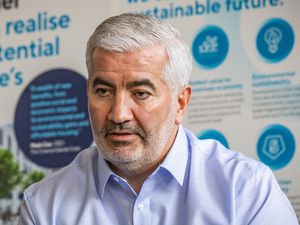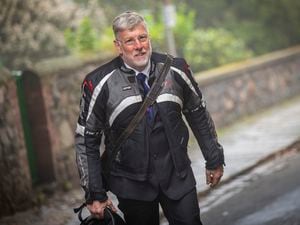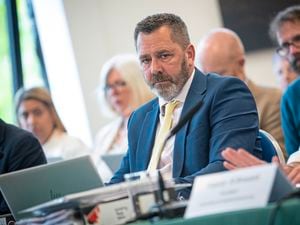WATCH: Ferry company DFDS makes its pitch for contract
Islanders can expect a reliable, transparent and eco-friendly ferry service should DFDS become the Channel Islands’ operator, the company’s vice-president has said.

Filip Hermann was speaking at a public meeting held at the Duke of Richmond Hotel yesterday evening, at which islanders were able to express their views and talk to senior DFDS figures about the company’s prospective tender bid during an interactive session.
Mr Hermann said that the company, which operates services between the UK and Europe, as well as in Scandinavia and the Baltic Sea, was interested in running Channel Islands routes because of its 150-year history as a business, as well as its long-term strategy and investment objectives.
‘We believe that our scale can create some great synergies being here, close to our other roots in the English Channel.
DFDS vice-president Filip Hermann on why it is taking an interest in serving the Channel Islands
‘That’s important when we talk about the green transition, for example, or contingency.’
He said that DFDS was looking to expand into using green technologies, and had recently conducted a design study of such a vessel which had seen a lot of progress.
He said that the company could be fully electric within a few years.
‘Whether or not the Channel Island route would be fully electric from the beginning relies on several things, not just on the study but also on the infrastructure and the port.
‘It’s a little hard to say but there’s no doubt that even a hybrid solution here could and would be a big improvement, and a first important step in the green transition for the Channel Islands.’
He said that it was too soon to estimate how many vessels the company would dedicate to the CI route, as well as what schedule it would operate.
However, he confirmed that its Finlandia Seaways vessel, which undertook berthing trials in St Peter Port harbour in December, would not be on the route, because it was too big.
‘We’re here to listen to and understand the concerns and the future aspirations of all these things that will give us the future the islands actually need and want.
‘There will most likely be some things we will need to live up to, some restrictions and some specific demands and we need to be able to adapt to them.’
He said that the two biggest takeaways from the company’s findings was the importance of reliability and transparency to islanders.
‘These two things come up again and again. As a 150-year-old company, we pride ourselves with our reliability, we are very familiar with the English Channel, and we believe we can apply that experience to the Channel Islands.’





